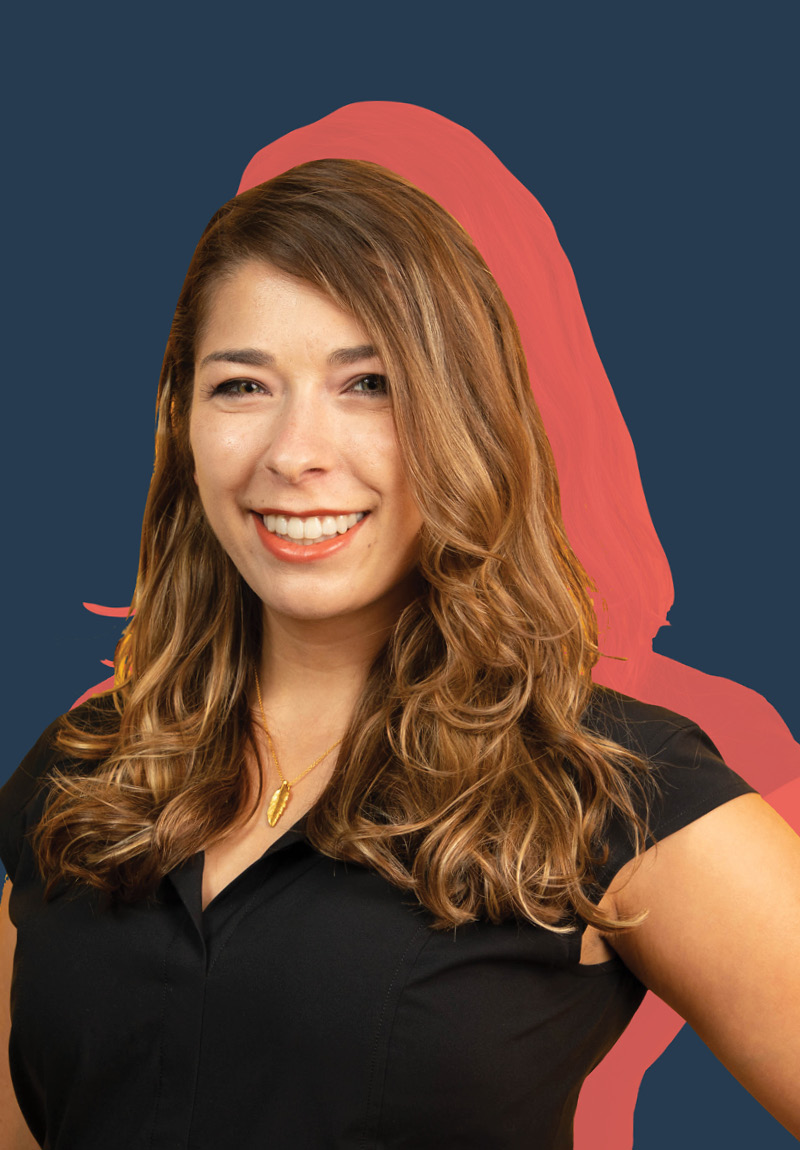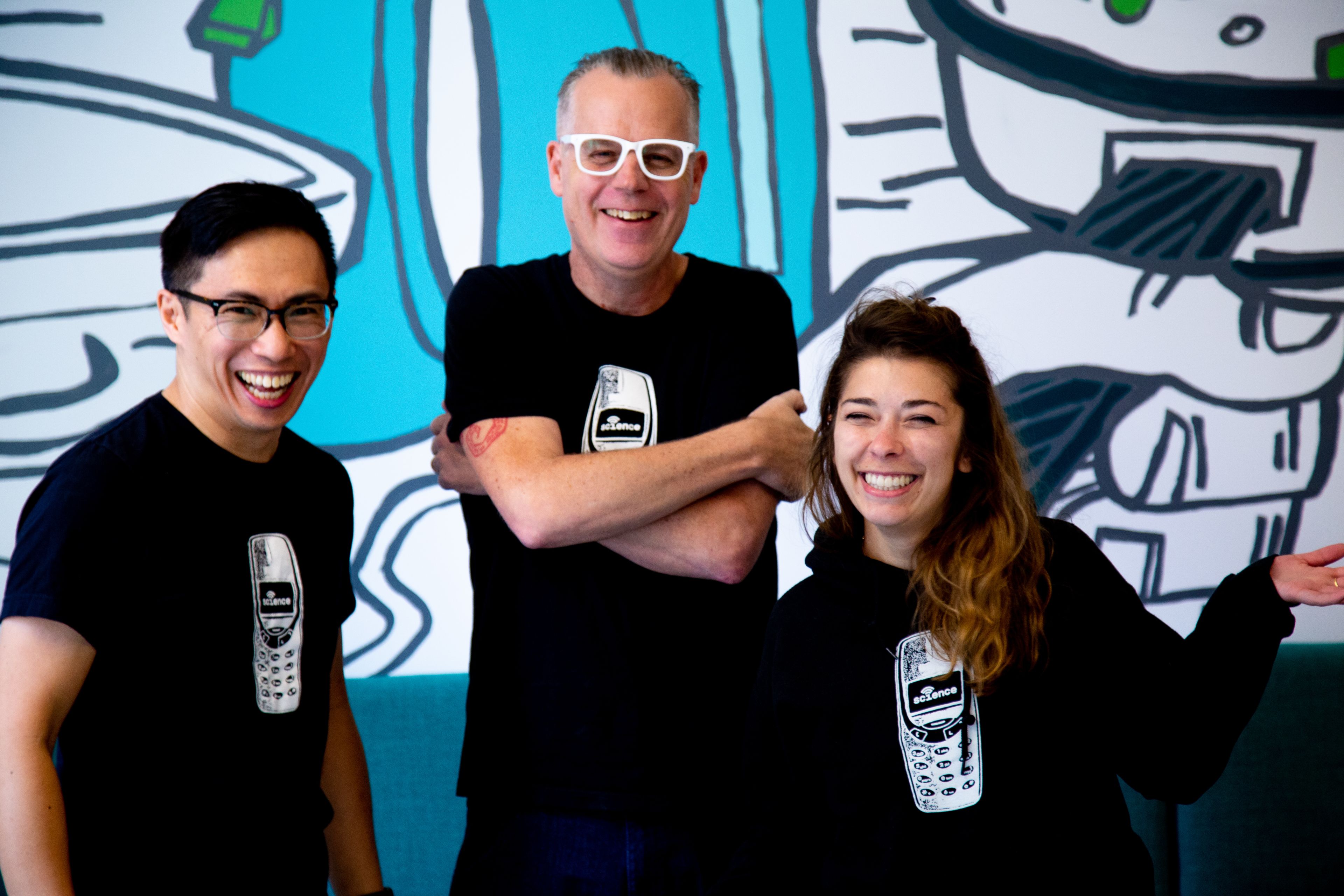
Meet
Luisa Castellanos

Investment Opportunity: Seed Stage
At a Glance
Company Science On Call
Year Created 2020
Mission Provide best-in-class support to reduce the friction around technology problems for restaurants.
Target Markets/Audience 1. Restaurant groups Independent chains with 10+ locations
2. Users Staff in the restaurant and internal IT departments
Website https://scienceoncall.com/
Background:
What makes Luisa unique?
Luisa Castellanos is the Co-Founder and COO of Science On Call. Starting her first company at age 11, she has always had a passion for entrepreneurship. Luisa has a bachelor’s degree in Marketing and Entrepreneurship from DePaul University and is a graduate of Stanford’s Latino Business Scaling Program. Luisa has a passion for supporting restaurants and coffee shops through technology. Luisa co-founded her second company in 2015 – Science Retail, a boutique IT consulting agency. This led her to create Science On Call - a company focused on the tech needs of restaurants by using an AI-powered answer engine to help restaurants solve IT problems quickly with little effort.
“Early in my start-up journey, I didn’t think much would be different being a woman in the entrepreneurial space. I thought my experience would be similar to that of my two male co-founders. However, throughout the fundraising process, I continually saw that I was one of the few women in the room.”
The Problem:
What Luisa Is Trying To Solve
The restaurant tech stack has become increasingly complex, and restaurant staff are unprepared and unwilling to deal with it. For example, a restaurant can make up to $5,000 per hour. When credit card readers stop working or printers aren't printing, that can be real money lost. Science On Call is working to solve this problem through a subscription-based tech support platform for restaurants. Science On Call's Tech Support Platform, leveraging Machine Intelligence and Natural Language Processing, provides rapid responses and resolutions to the most common technology challenges in restaurants.

Q&A
We sat down with Luisa to talk with her about how she got her start as a founder, what her seed funding stage has been like, and how GET Cities has helped.
How did you come up with Science On Call?
Prior to creating Science On Call, I ran an IT consulting company for brick and mortar businesses. However, even though there is a huge need for tech support in the restaurant industry, I realized that the company was not scalable regardless of the need for tech support from restaurants. This is how Science On Call was born - it is a scalable way to provide tech support to restaurants and help restaurants leverage their technology.
What milestones are you most proud of?
I would say bringing on our first employees including our third co-founder and CTO Ken. Prior to bringing on Ken, we were an IT fix it shop. He brought new life to the company and helped us turn it into something scalable. Another milestone was getting into a food accelerator program, Food Foundry (run by Relish Works), which became our first funder. After this, we still didn’t have a clear path on how to scale our company, but we were lucky enough to get into the TechStars Farm to Fork program the following year where we raised $1.6 million pre-seed. This was a huge opportunity to become part of the start-up community and grow our business. Lastly, building our team and bringing on people from all over the country was a huge milestone. We were able to bring on people with different experiences and backgrounds. I’m really motivated by our team and how much we have grown, and that we have built this exciting culture that other people want to be a part of.
What was the most challenging aspect of starting your own company?
The biggest sacrifice Andy, my co-founder, and I made early on was leaving our full-time jobs to work for Science On Call full time. It was exciting, but there is great risk associated with losing that stability and not knowing what the future holds. Therefore, if you are going to go out on your own, it is necessary to be resilient. Just a couple of months after going out on our own, the Covid-19 pandemic hit in March 2020. This taught us how to really be resilient and keep focusing on the problem. In March 2020, we paused service for our customers that we did have at the time. We used 2020 as a period to just be there to help our customers through whatever they needed. By offering this support, we were able to build even stronger relationships with our customers, make connections with potential new customers, and gain more trust from the restaurant community. These relationships helped us better understand the needs of our customers, and helped us learn more about the problems of the future for restaurants as the pandemic also created new IT needs for restaurants such as online ordering.
What type of support system have you had and what has that meant for your founder journey?
It’s a huge list, and I don’t want to forget anyone, but the founders in the community have been first and foremost super helpful to me personally. I’ve always looked up to founders who are a bit ahead of me and that is something I also try to give back to the community. Being a founder can feel isolating at times, and it is easy to get stuck along the way; therefore, it has been crucial for me to have a community of founders who understand the challenges I’m going through and can offer advice. My support system also includes investors and mentors who have been with Science On Call from the beginning - such as Relish Works, who was our first investor. They’ve really helped us in the fundraising process and making connections with other investors.
What do you think is unique or significant about being at the seed stage in particular?
One way Science On Call has been able to grow during the seed stage is bringing on more staff such as a product development lead and sales team, which was something we were not able to afford before. Though we’re growing, there are still challenges in the seed stage. For example, I found a great deal of support from the Chicago tech community during the very early stages of Science On Call, but now that we’re entering the seed stage, I’m finding that there are not as many grants or programs for people who are in later stages of their company. One reason for this may be that people expect that since you’ve been running a company for a while now, you should already know about finances, marketing, and fundraising, but there is still a lot of new information to learn. Also, there are not as many women founders who have gotten to this stage, and they are understandably busy people so they may not have the time to mentor and teach other women founders entering the seed stage. This is one reason I was excited to be part of GET’s Seed Founder cohort because it is a program that is focused on the seed stage.
What is unique about being a woman in the entrepreneurial space?
Early in my start-up journey, I didn’t think much would be different as a woman in the entrepreneurial space. I thought my experience would be similar to that of my two male co-founders. However, throughout the fundraising process, I continually saw that I was one of the few women in the room. I never really felt that I was passed by, but it was interesting to see that there just aren’t as many women investors or investors with diverse backgrounds out there. This impacts having a personal relationship with investors. As most of our investors are men, it can be difficult for me to have as strong of a relationship with them as my co-founders who are men do. Therefore, more opportunity for women investors and investors from diverse backgrounds is an important part of closing inequality gaps in the entrepreneurial space and getting more money into the hands of historically excluded founders.
How has “community” played a role in your entrepreneurial journey?
There is community and there is also friendship. Having close one-on-one relationships with other founders is really important. I have founder friends that I text all the time and invite to birthday parties. Though I love spending time with my non-founder friends, there is something unique about a founder-founder friendship. They understand the challenges you’re going through and share the same experiences. I have also found a general community in the Chicago startup space, and see the same investors, founders, and community members at different events throughout Chicago.
What is one piece of advice you would give to aspiring women entrepreneurs?
Be yourself - people are going to recognize that. It may seem like you have to put on a serious face or pretend to be someone that you’re not in order to win someone over, but I’ve found that, especially with fundraising, you don’t want to get into this long-term relationship with an investor if you are not being your authentic self. Find people who you connect with and feel comfortable being yourself around because building relationships with investors is like dating so it is important to be yourself.
What made you want to participate in the GET Seed Founder cohort?
I wanted to participate in the GET Seed Founder cohort because of how customizable it was to me and Science On Call. I liked how instead of required sessions for founders, GET emphasizes connections and relationship building. I’ve also enjoyed that the cohort is a small group of other women founders that I can connect with and know one-on-one. Also, being in a year long program has allowed me to grow in a way that is not possible in a 12 or 16 week long program. For example, within the year, I have made new friends and connections, raised seed round, and traveled to Miami!
What would you say is the most valuable tool, connection point, or piece of wisdom you have gained from being part of GET’s Seed Founder cohort?
For me, the most valuable part of the GET Seed Founder Cohort has been the connections I have made with other founders. I knew some of the founders prior to joining the cohort, but I did not have the strong relationships with them that I do now. I am grateful to be part of a cohort of women who are willing to offer each other support and cheer each other on.
The average IT person costs about $150/hr or a salary of atleast to manage that technology.

The average restaurant experiences 8-12 technology issues per month costing them hundreds or even thousands of dollars in revenue.

850,000 restaurants in the US are expected to spend on technology by 2026

For more information on how you can get involved, reach out to